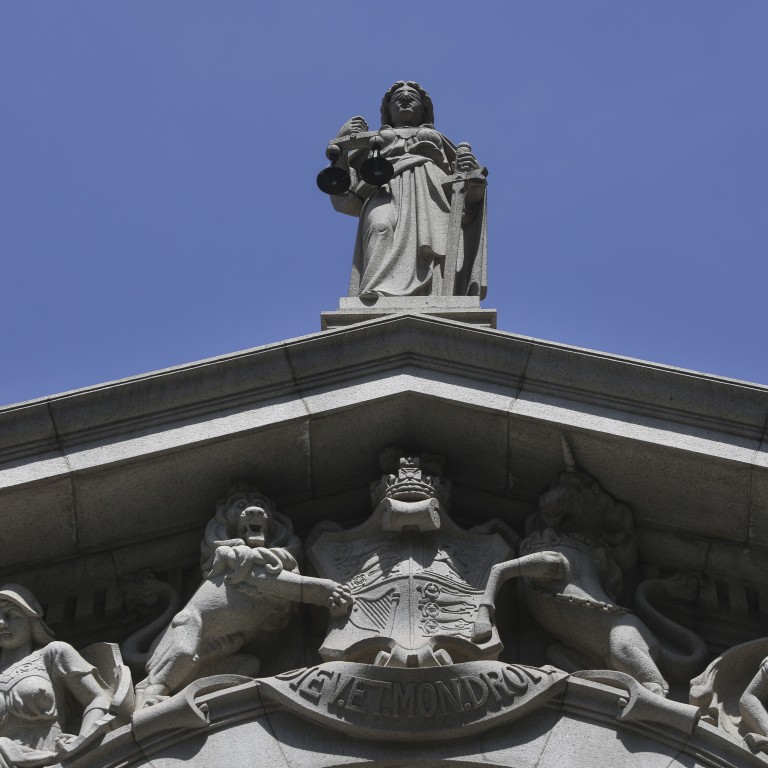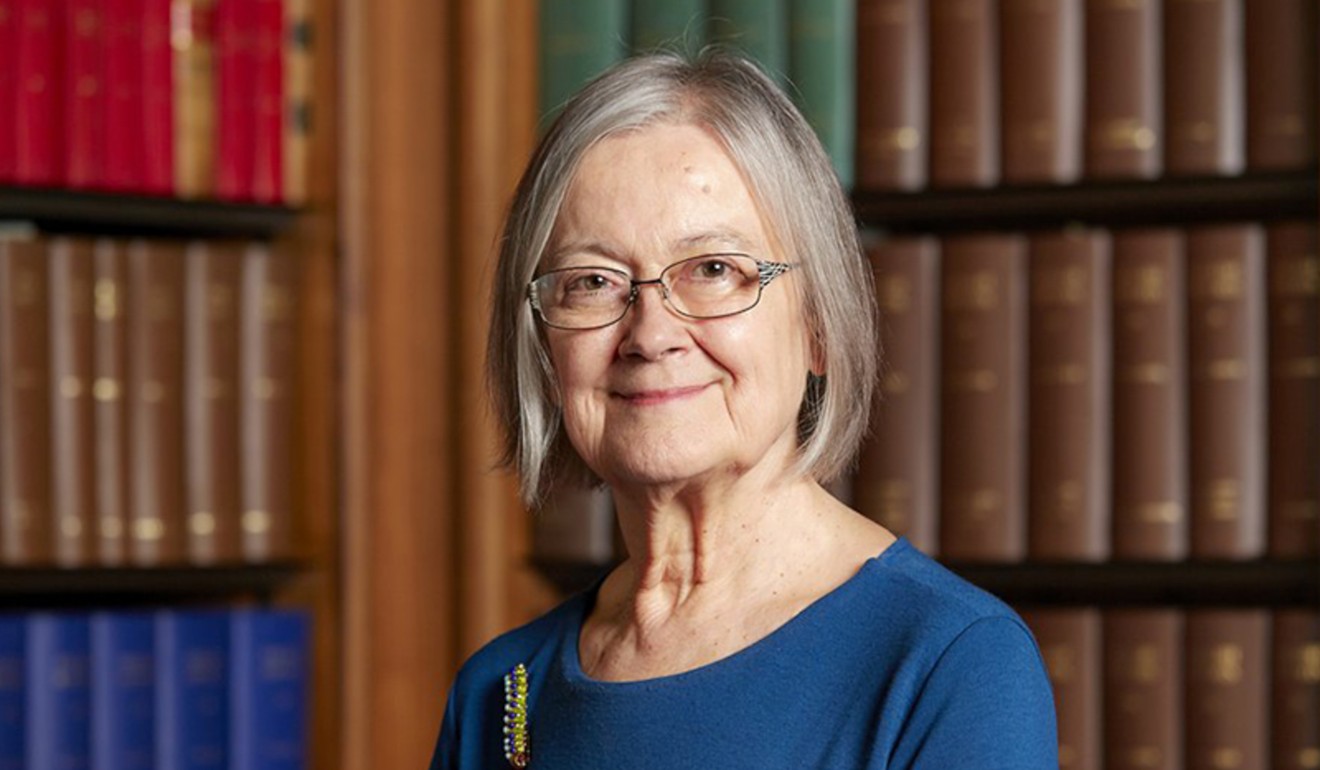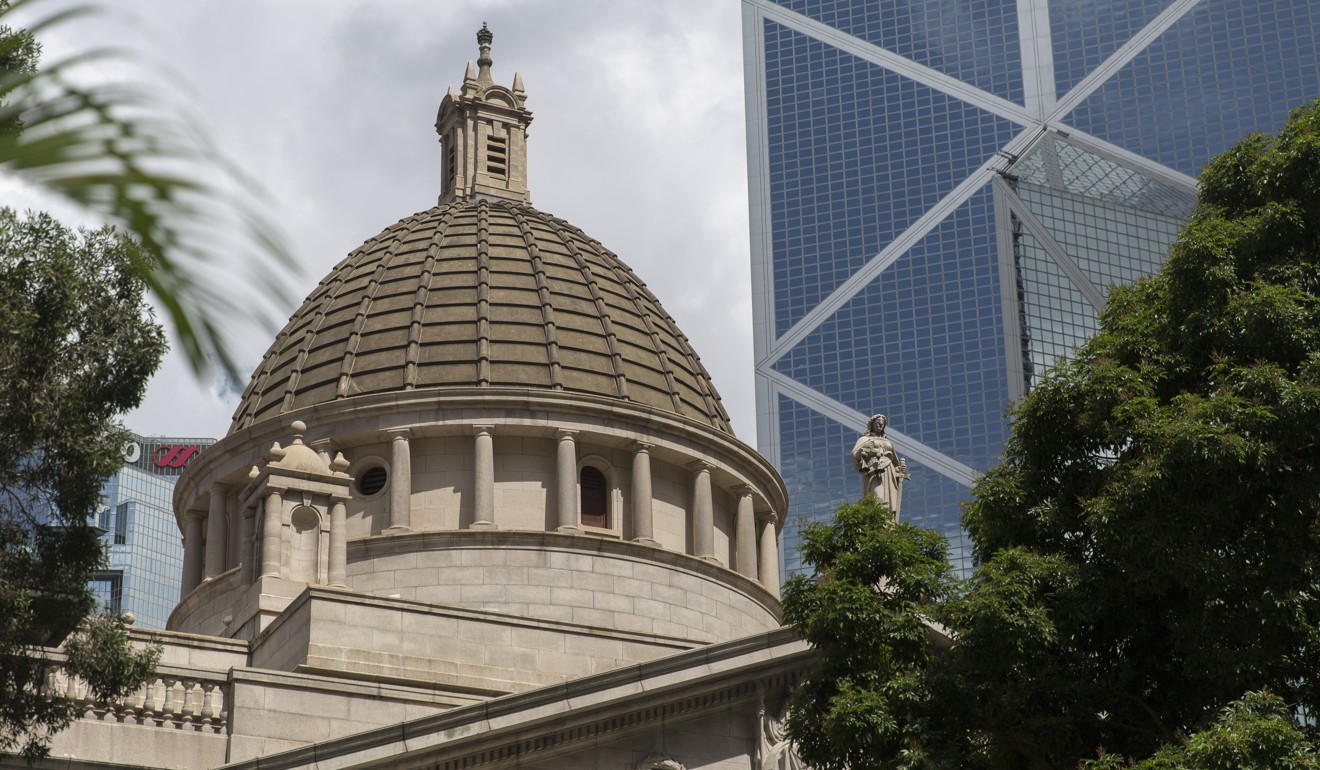
British judge’s high-profile sittings join backlog of cases created by Hong Kong court closures during coronavirus scare
- As many as 1,000 cases have been delayed thanks to court closures that as yet have no clear end in sight, legal sources said
- Baroness Brenda Hale has handled such landmark cases as Britain’s departure from the European Union
A former British chief justice’s plan to sit at Hong Kong’s top court for what are reportedly the final hearings of her career has been delayed, due to court closures during the coronavirus epidemic that have already created a growing backlog of cases, legal sources said.
Baroness Brenda Hale, a non-permanent judge at the city’s Court of Final Appeal, was expected to hear a pair of high-profile cases in February, but courts have been closed since January 29, with no clear indication yet of when they will reopen.
Hale, who has penned such landmark judgments involving Britain’s departure from the European Union and issues of gender and sexual equality, retired from the United Kingdom’s Supreme Court in January.
She was to join four Hong Kong judges at the city’s Court of Final Appeal to hear at least two cases.

One was former lawmaker “Long Hair” Leung Kwok-hung’s appeal against alleged discriminatory haircut policies for male prisoners at the Correctional Services Department. Leung initially won in High Court, only to then lose in the Court of Appeal.
The other case was another criminal appeal not yet revealed by the court.
The courts informed Leung’s lawyers on Wednesday that his hearing had to be adjourned, two legal sources said. While date has been set for his final challenge, Hale is expected to return whenever courts resume.
British newspaper The Guardian previously reported that “after sitting for a month in Hong Kong’s Court of Final Appeal”, Hale would “formally retire” to spend more time on her own interests and family.
The rescheduling of the judge’s trip was just the tip of the iceberg, according to lawyers who spoke to the Post, including some who have temporarily served on the bench. The judiciary has previously said only urgent applications are being heard following the decision to adjourn most hearings from January 29 until at least February 24.
The Law Society, which represents the city’s 10,000 solicitors, this week raised concerns over the growing backlog, and joined others in calling for the judiciary to turn to technology to handle cases remotely.

The judiciary would not provide an exact estimate of the number of cases backlogged.
“Relevant arrangements on how the courts resume full operation, including arrangements relating to court proceedings, will be announced at an appropriate time,” it said in a brief reply to the Post on Thursday.
Some lawyers and deputy judges, a temporary role taken up by legal practitioners, estimated there could be anywhere from hundreds to more than a thousand cases delayed across all levels of the city’s courts.
“Why can’t judges have a conference call with both parties like that in arbitration cases,” one frustrated deputy judge who declined to be named asked. “The only upside is that this provides a window to write up unfinished judgments.”
Both the Bar Association, which represents the city’s barristers, and the Law Society have urged the courts to settle some civil matters on paper if both parties agreed, instead of convening an oral hearing.
We are concerned about the ramifications of a closure of courts for an indefinite period and their impact on access to justice and the rule of law in Hong Kong
Moving to “e-court”, however, is more difficult for the judiciary, since lawyers are required by current rules to provide a hard copy of their documents. Local courts are still using fax machines, and judicial staff are not allowed email lawyers about cases.
The Law Society has also pressed the judiciary for a criteria for the reopening of the courts.
“Health and safety of all parties involved are of paramount concern. However, as [Hong Kong is] a major international financial centre, we are concerned about the ramifications of a closure of courts for an indefinite period and their impact on access to justice and the rule of law in Hong Kong,” Law Society president Melissa Pang Kaye wrote to the judiciary on Monday.
“We consider it important to explain to the public what factors the Judiciary will take into account in deciding when to resume the operation of the courts and tribunals as the public health situation may not improve within a short time.”
She said increasing the use of technology could be a way forward.
In a paper to the two bodies circulated to solicitors and barristers on Monday, the judiciary said it is considering the strategies and arrangement for court business to resume, and asked lawyers acting for the adjourned cases not to swamp the court on the first day when it resumes business.
The affected cases will be rescheduled, it added.
As to the use of emails or electronic filing, the judiciary said it is “proactively considering such suggestions having regard to the legal, policy, operational and technical implications.”

